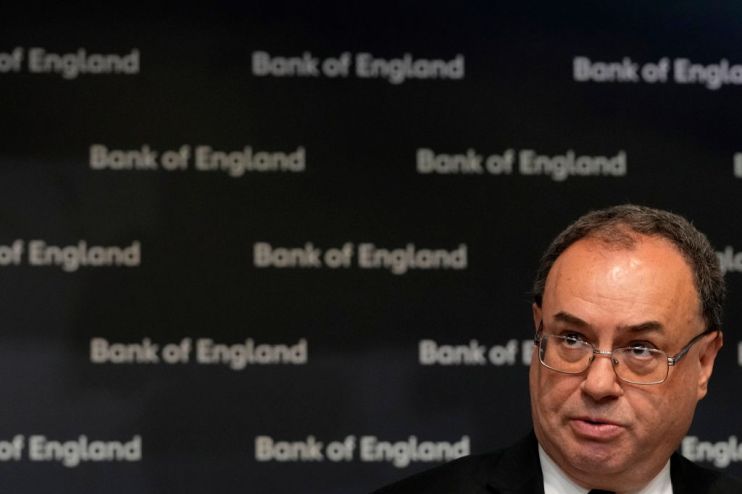Governor Bailey: Nothing different BoE could have done to prevent double-digit inflation

Bank of England chief Andrew Bailey today defended his performance in overseeing “the biggest test” in the monetary authority’s 25 years of independence.
Bailey, 63, said there was nothing else the Bank could have done to prevent inflation surging to more than five times its two per cent target in response to a grilling by the cross-party Treasury Committee.
Asked whether Threadneedle Street’s group of rate setters could have shaped monetary policy differently over the last year, Bailey said “I don’t think we could”.
Inflation is forecast to top 10 per cent just after the summer, according to the Bank’s latest estimates.
The governor said rate rises will not prevent living costs driven by higher imported energy prices as a result of Russia’s invasion of Ukraine scaling to eye-watering levels.
Forecasting double-digit inflation and saying we cannot do anything about it is a “very, very difficult place for [the Bank] to be in,” Bailey added.
He warned of a steep rise in food prices that is “a major worry for this country” caused by Ukraine’s inability to export wheat and sunflower oil due to Russia’s invasion and apologised for sounding “apocalyptic”.
This week is likely to be among the toughest spells Bailey has faced as head of the Bank since he took over from Canadian Mark Carney in March 2020.
New inflation figures published on Wednesday could climb as a high as 9.3 per cent, according to a worse case scenario put forward by Deutsche Bank.
Prices are already seven per cent higher than they were a year ago, the quickest acceleration since 1992.
Jobs figures published tomorrow are also expected to show wage pressures persisting amid a tight labour market.
The Bank has responded to high inflation by lifting rates from a record low 0.1 per cent to a 13-year high of one per cent in just six months. They are still low by historical standards.
Markets think rates will top two per cent by the start of next year.
Wages are expected to trail far behind inflation this year, triggering a “very big [real] income shock,” Bailey said, adding these dynamics will drive down inflation by curbing demand.
A cool down in consumer spending in response to what is projected to be the worst living standards drop since the 1950s by the Office for Budget Responsibility is likely to tip the UK into a recession this year.
Weaker than expected GDP figures last week prompted the National Institute of Economic and Social Research to warn a slump may happen earlier than first feared.